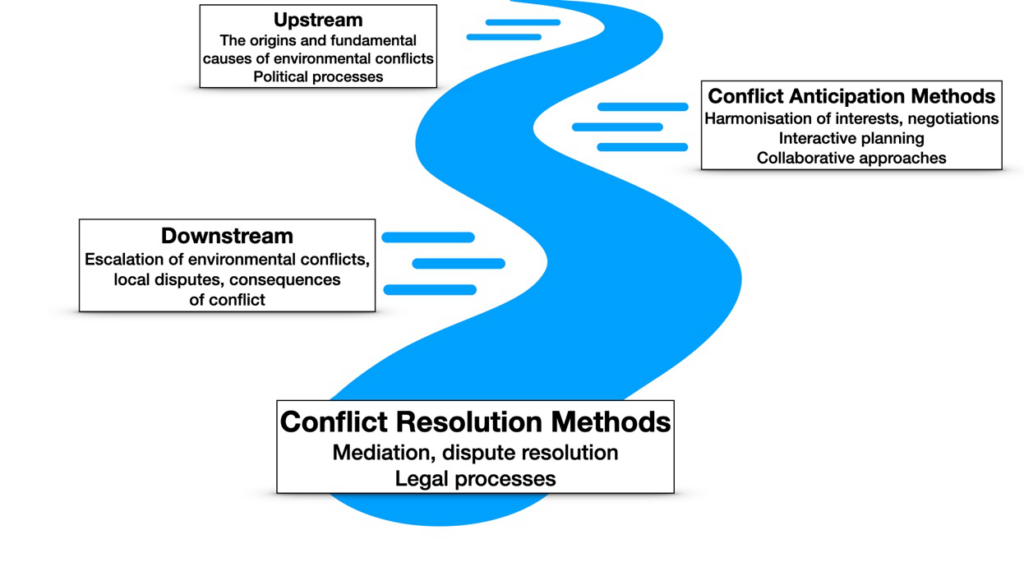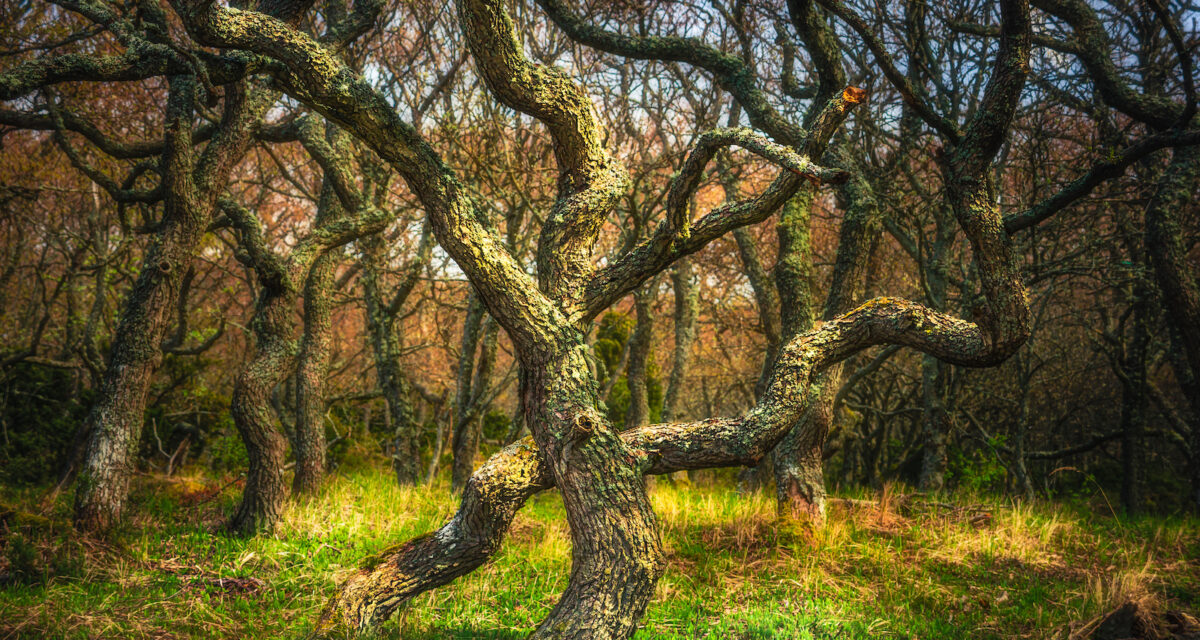The green transition is a significant societal transformation, involving struggles between various interest groups. Which conflicts can be anticipated and avoided, and which battles are unavoidable?
The aim of the green transition is the creation of a sustainable economy that does not rely on energy from fossil fuels or overexploitation of natural resources. Despite its positive goal, the implementation of the green transition is associated with conflicting interests, values, and rights. For example, wind power has impacts on land use, nature, people, and animals. In situations where conflict cannot be avoided, how and where should they be addressed and resolved?
Anticipating and managing conflict
Currently, conflicts related to projects that affect the environment are addressed in municipal planning and decision-making processes, as well as in impact assessment and permit-granting processes. More generally, the green transition raises questions about regional impacts, pace of the transition, cumulative effects of projects, of benefits and drawbacks, and the roles and impacts of new technologies. For instance, conflicts related to wind farm construction illustrate some of the challenges faced by society: the majority of wind power projects lead to zoning appeals and subsequent consideration by administrative courts.
The implementation of the green transition requires tools for reconciling interests, anticipating conflicts, and finding solutions. In many planning and decision-making processes, there is room to identify and create space for collective deliberation, problem-solving, and conflict anticipation.
What could a conflict anticipation and resolution facility look like?
Over the next two years, and with the support of the TAH Foundation, Akordi will work with a broad network of partners to build a neutral forum for proactive conflict management and resolution, targeting conflicts that arise within the green transition. The project includes experts and organizations working on core issues related to a just transition, with a direct view of the conflict potential during the transition.
The project draws on both Akordi’s cumulative experience and international examples of environmental conflict resolution models (see, for example, the Conflict Prevention and Resolution Center of the US Environmental Protection Agency, and the National Policy Consensus Center in the state of Oregon)
Akordi is a not-for-profit social enterprise with ten years of experience in resolving environmental disputes in Finland. Across Akordi’s work, we have seen widely accepted solutions emerge through collaborative problem-solving between actors.
Between 2020 and 2022, with the assistance of Akordi acting as a neutral third party, the wind power industry and reindeer herders were able to create joint recommendations for the planning and operation of wind farms in reindeer herding areas. Why were these recommendations needed? Just over one-third of Finland’s land area is designated as reindeer herding territory. Wind power projects in reindeer herding areas have typically been located in areas outside of inhabited regions, which are nonetheless crucial for reindeer herding. Instead of each individual wind farm project encountering the same pitfalls, the focus of conflict management can be directed to an earlier stage in the process, from the project level to the “upstream” phase.

Figure: Identifying and anticipating conflicts at the ‘upstream’ stage before conflicts escalate
“Go slow to go fast”
There are no shortcuts to solving difficult questions. Given the high cost of conflict, the most efficient and often quickest way to achieve lasting results is to start by carefully defining the overarching problem and the issues to be addressed within that problem, actively engaging those who have a stake in it and have something to contribute to the solution.
Once the essential questions and the stakeholders required for a sustainable solution have been identified, it is possible to build a meaningful process for everyone involved.
Long-term effectiveness comes from the commitment of key stakeholders to implement the jointly created solutions. Such work often requires external assistance and sometimes a neutral platform where everyone can participate knowing that their contributions will have a meaningful impact.
Opening seminar at Puistokatu 4
The project will be launched with an open seminar at Puistokatu 4 on September 12, 2023, from 3:00 PM to 5:00 PM.
You can watch the recorded live-stream of the event here.
The discussion circles around the following themes:
- How are land use conflicts currently resolved in municipal and regional planning processes?
- How does proactive conflict management relate to legal processes?
- What practices do responsible companies have for handling conflicts?
- How does the demand for justice manifest in green transition conflicts?
- What could a green transition conflict anticipation and resolution center look like in Finland?
Event program
3:00 PM – Harri Lammi from the Tiina and Antti Herlin Foundation: Societal bottlenecks in sustainable transition and how to overcome them.
3:15 PM – Jonna Kangasoja from Akordi: Bringing different perspectives together and assisted problem-solving
3:30 PM – Merrick Hoben from CBI: Dignity in a Time of Rupture
3:45 PM – Tiina Sanila-Aikio: Securing the rights of indigenous peoples in the green transition.
4:00 PM – Lasse Peltonen from the University of Eastern Finland: ‘Fitting the forum with the fuss’ – What kind of conflicts will the transition create, and what procedures are needed to deal with them?
4:20 PM – Commentary: Minna Ojanperä (Confederation of Finnish Industries) and Touko Sipiläinen (Greenpeace)
4:40 PM – Discussion and questions
5:00 PM – Event closes
Cover photo: Timo Siivonen

